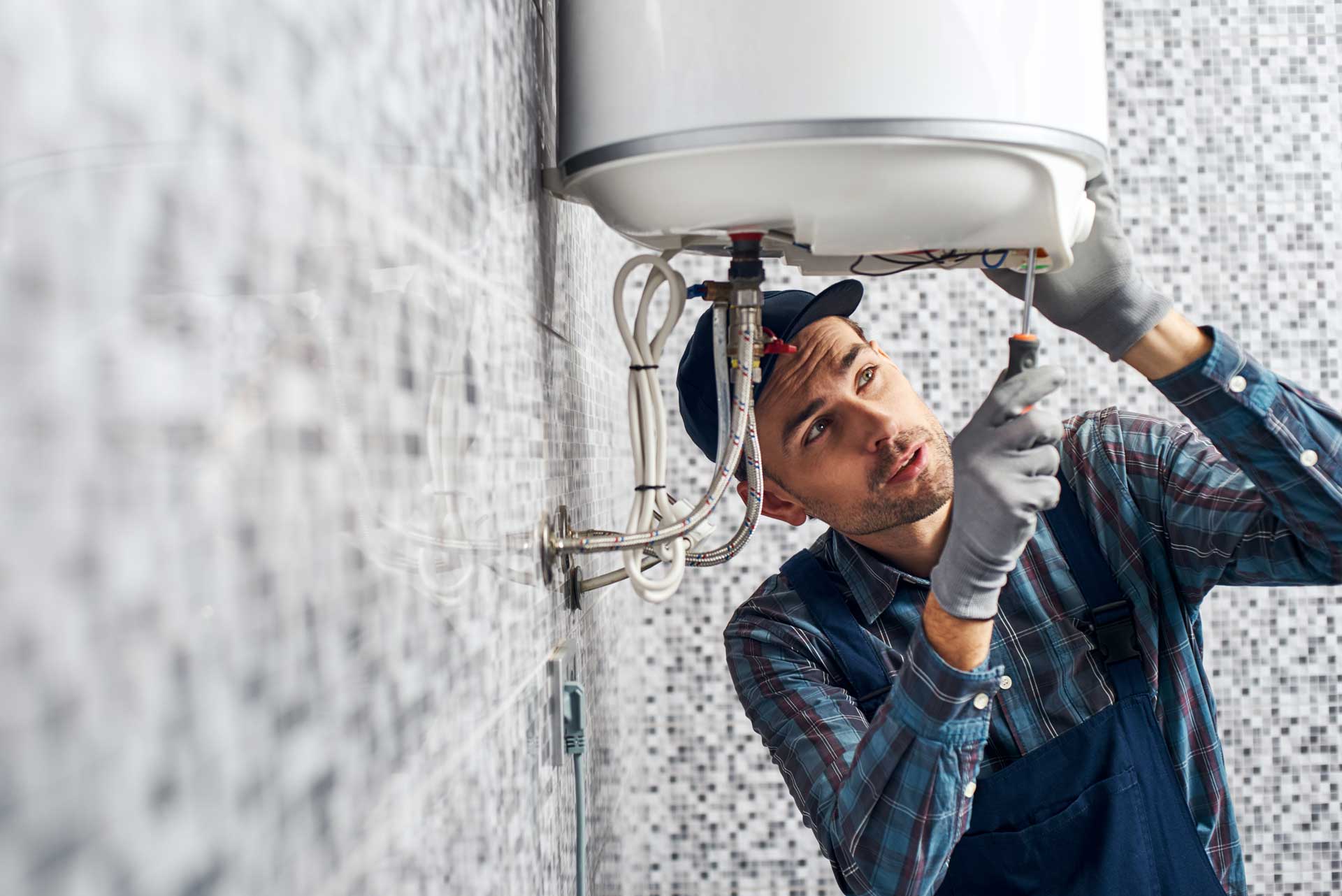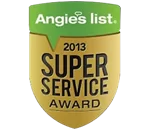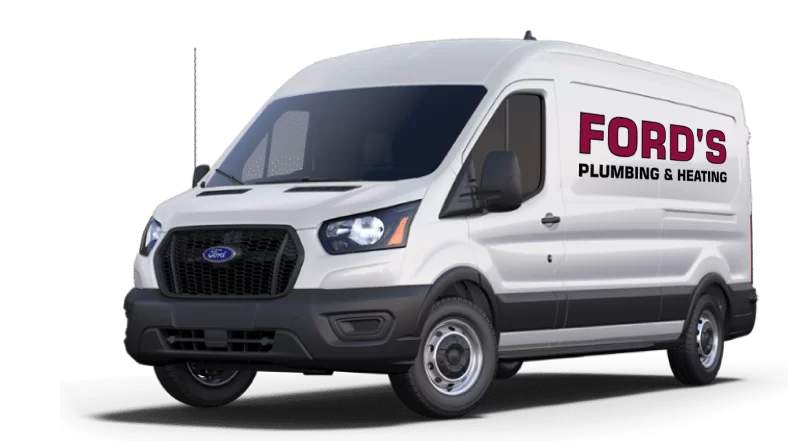Electric water heaters are essential for providing hot water in homes and small businesses. Unlike their gas counterparts, electric water heaters are often thought to be free from the need for venting.
Let’s take a look at how electric water heaters work, explain what venting is and why it is important, and discuss the advantages and disadvantages of tankless water heaters, with a specific focus on electric tankless water heaters.
How do Electric Water Heaters Work?
Electric water heaters operate by using one or more heating elements, typically made of metal, to heat the water stored in a tank. Here’s a simplified step-by-step process of how they work:
1. Cold Water Inlet: When you turn on a hot water tap, cold water from your home’s water supply enters the tank through a pipe.
2. Heating Element Activation: Inside the tank, one or more heating elements are activated. These elements get hot when an electrical current passes through them.
3. Heat Transfer: As the heating elements get hot, they transfer their heat to the surrounding water. This process continues until the water reaches the desired temperature.
4. Hot Water Outlet: Once the water reaches the set temperature, it is ready for use and is sent out of the tank through a hot water outlet pipe to the faucets and appliances in your home.
5. Temperature Maintenance: The heating elements cycle on and off as needed to maintain the water temperature in the tank. This ensures that you always have access to hot water when you need it.
What is Venting and Why is it Important?
Venting is the process of removing combustion byproducts, such as carbon monoxide (CO), from the combustion chamber of gas-fired appliances like gas water heaters and furnaces. Venting systems are designed to safely transport these harmful gasses outside of your home, preventing their accumulation indoors.
Ventilation is crucial for gas water heaters because they rely on the combustion of natural gas or propane to heat water. During combustion, these fuels produce various gasses, including CO, which can be deadly if inhaled in high concentrations.
However, electric water heaters operate differently, as they use electric heating elements to heat water. As a result, they do not produce combustion byproducts, eliminating the need for venting. This makes electric water heaters a safer and more straightforward option when it comes to installation and maintenance.
Advantages and Disadvantages of Tankless Water Heaters
Now, let’s look at the broader topic of tankless water heaters, with a specific emphasis on electric tankless water heaters. These systems have gained popularity for their unique benefits and considerations.
Advantages of Tankless Water Heaters:
1. Energy Efficiency: Tankless water heaters are highly energy-efficient because they only heat water on demand. This means they don’t constantly keep a large tank of water hot, which can result in significant energy savings over time.
2. Endless Hot Water: With a tankless water heater, you won’t run out of hot water, even during long showers or when using multiple hot water appliances simultaneously.
3. Space Savings: Tankless water heaters are compact and wall-mounted, saving valuable floor space compared to traditional tank-style water heaters.
4. Longevity: Tankless water heaters often have a longer lifespan than traditional tank-style heaters, typically lasting 20 years or more with proper maintenance.
5. Reduced Risk of Water Damage: Since tankless heaters do not store large volumes of water, the risk of tank leaks and water damage is significantly reduced.
Disadvantages of Tankless Water Heaters:
1. Higher Initial Cost: Tankless water heaters generally have a higher upfront cost compared to traditional tank-style heaters. However, the energy savings over time can offset this initial investment.
2. Limited Flow Rate: The flow rate of a tankless water heater is determined by its size and capacity. If you choose a unit with a lower flow rate than your hot water demands, you may experience reduced hot water delivery at once.
3. Installation Complexity: Installing a tankless water heater may require modifications to your electrical system and plumbing, which can increase installation costs.
4. Cold-Water Sandwich: Some users report experiencing a brief burst of cold water between the time they turn on the tap and when the tankless heater begins delivering hot water. This phenomenon is known as the “cold-water sandwich.”
Are Electric Tankless Water Heaters Good?
Electric tankless water heaters are indeed a viable and efficient option for providing hot water in your home. Their advantages include energy efficiency, endless hot water supply, and space savings. Additionally, electric tankless water heaters do not require ventilation, making them a safer and more straightforward choice compared to gas-powered models.
However, the suitability of an electric tankless water heater depends on your specific hot water needs and your home’s electrical capacity. Before making a decision, consider the following factors:
1. Electrical Capacity: Electric tankless water heaters require a significant amount of electrical power to operate efficiently. Ensure that your home’s electrical system can handle the demands of the heater you choose.
2. Flow Rate and Temperature Rise: Different electric tankless water heaters have varying flow rates and temperature rise capabilities. Choose a unit that can meet your household’s hot water demands.
3. Installation Cost: While electric tankless water heaters eliminate the need for venting, the installation cost can still be relatively high, especially if electrical and plumbing modifications are required.
4. Long-Term Savings: While the initial cost may be higher than that of a traditional water heater, electric tankless models can provide long-term savings through reduced energy consumption.
5. Maintenance: Regular maintenance is essential to keep your electric tankless water heater running efficiently. Be prepared for occasional descaling and cleaning.
Get the Best Electric Water Heaters and Maintenance in Los Angeles
Electric water heaters, including electric tankless water heaters, do not require ventilation because they do not produce combustion byproducts like gas water heaters. They are safe and efficient options for providing hot water in homes and businesses.
If you’re considering an electric tankless water heater, contact Ford’s Plumbing and Heating in Culver City and we can evaluate your needs.



















